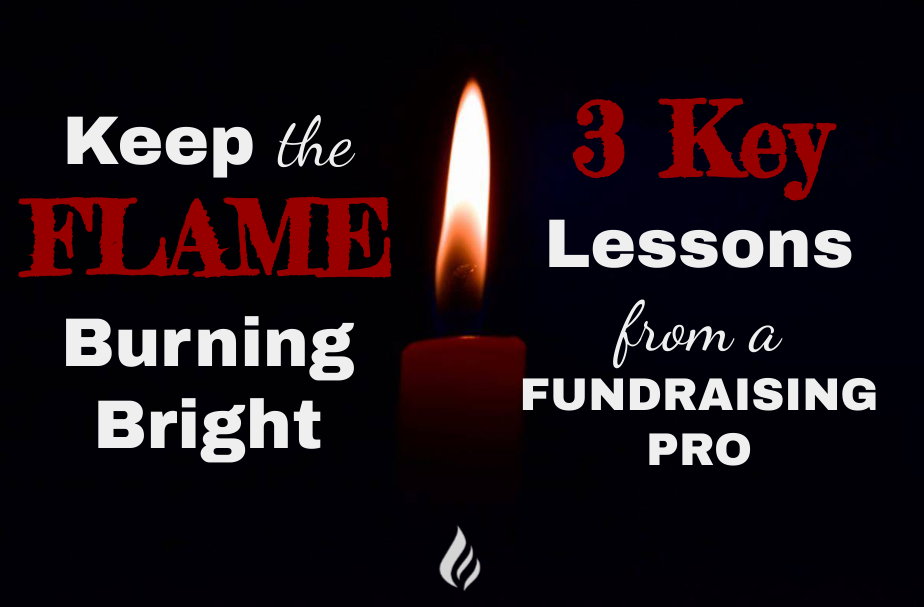This post was written by Patriot Academy alumnus and fundraiser extraordinaire Emily Nicholson.
Fundraising–it’s one of the biggest tasks on practically every PA student’s agenda. And for good reason: most students don’t have an extra cache of $800-$995 lying around to spare. Even if you do, PA strongly suggests that you raise your funding from outside sources in order to gain firsthand experience in this crucial aspect of the political process.
Most people’s first instinct is to hit up their family and friends for donations. This can work really well, and if that’s what you want to do it’s a great method. However, if you’re not wild about doing that (again!), or if you’re interested not only in raising funds but also in spreading the message of Patriot Academy and expanding your personal horizons, I’ve got another option for you.
I stumbled upon this fundraising method my first year as a PA student, and it has funded all three years I’ve attended. Not only that, I’ve made valuable contacts within my local political world and been offered excellent opportunities for future training and impact. In addition, people all over my region now know about Patriot Academy and the important work it’s accomplishing.
Nor is this something that only worked for me or in my area. There’s a readymade audience throughout the country that wants to hear what you have to say and is already interested in helping you succeed. They’re just waiting for you to find them.
I’m talking about local conservative organizations. Call them what you will—Republican clubs, TEA party groups, grassroots coalitions—they all have a similar motivation: to promote the conservative cause. And most of them are really excited about helping out young conservatives. They realize that the future of this country lies with us, and they are committed to helping us prepare for leadership.
But in order to help us, they have to know who we are and how we need help. This is your job. Here’s how I’ve done it.
First, identify the conservative groups in your area. I recommend picking two for starters (you can always add more later). You need to find out their regular meeting schedule and who’s in charge.
Then you have to establish contact with each group. This can happen in different ways. Once, a mutual friend introduced me to the secretary of the local Republican women’s club; another time, I attended a grassroots group’s regular meeting and introduced myself to the president afterward. Tell them you’re going to be attending a program called Patriot Academy and ask them if their group might be interested in hearing more about it and possibly supporting you.
At this point, it’s possible that they will want to take your case to the group themselves and get back with you on what they decide. But unless they have heard of you or PA before, they will probably want to hear more. In this case, set a date with them when you can come and briefly (five minutes-good, ten minutes-max!) explain to the group who you are and what you’re doing.
When that day comes, be prepared. These groups want to invest in young people, but you still have to convince them that you are a young person worth investing in. Arrive early. Dress professionally. Speak clearly. Above all else, stay within your time limit.
Exactly what you say is up to you—if you are an alum, you definitely want to talk about the impact PA has had on your life so far; and if you are a freshman, I would recommend expressing your current interest in politics and/or leadership and how you expect PA to move you forward. If you have time, get the PA office to send you PA brochures to pass out. Plan to stay for the entire meeting, and meet as many people as you can before and after.
In your presentation, tell them the cost of your tuition (be sure to note that all contributions are tax-deductible). Each group donates differently: some like to donate as a body, and others prefer to allow their members to contribute individually. Either way, know how donations are supposed to be made so that nothing has to be fixed later. For instance, checks should be made out to PA, not you. If someone gives you cash, then you need their address, and so on.
Because there’s a lot to remember, I strongly recommend creating a simple half-page info sheet on donations so that you can hand it to people without having to go over everything verbally. Plus, this way people have something to take home, and there’s always the chance you may get an additional donation later!
Of course, once you receive donations, whether at the meeting or in the mail, write thank you notes promptly. And it’s a very good idea to make arrangements to come back after Patriot Academy and share what you learned. If you only get money from these groups, you’ve lost half your reward. These are people you want to develop relationships with. Keep in touch.
One last thing. If you’re reluctant about asking a group of total strangers for money, I understand. I was too at first. But keep in mind that these people want to support you. They are desperate to see young leaders rising from our generation. By sharing your aspirations with them and asking them to invest in your training, you are giving them an opportunity to impact the future and assuring them that the principles they are fighting so hard to preserve will not be lost tomorrow. Everyone benefits.
If you’ve never done this before, I encourage you to step out and try it. You have nothing to lose and a lot to gain, not to mention a lot to give. Your world will be wider than it was before, and you’ll earn funds—and maybe even a few friends!—in the process. I guarantee you won’t regret it.














